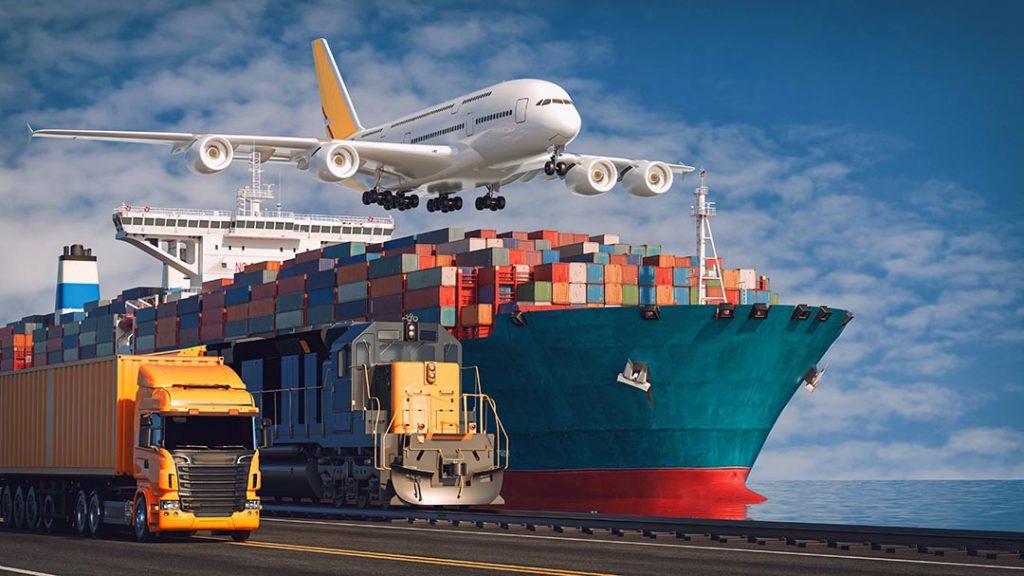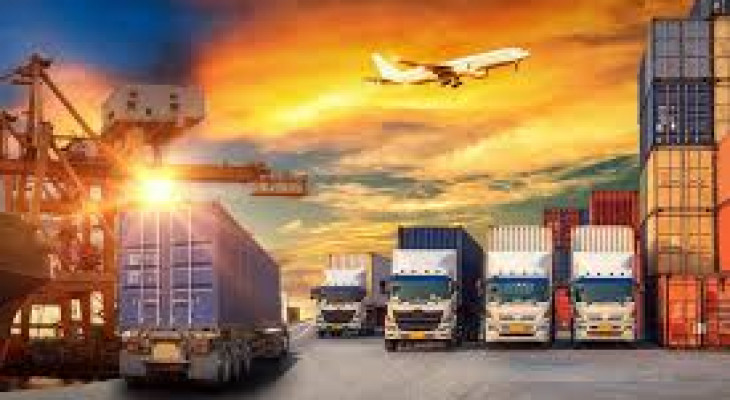Indias Logistics: A Strategic Catalyst Amid Global Turbulence




India's logistics sector is experiencing a remarkable digital transformation, evolving from a traditional back-end function into a pivotal force driving the country's economic landscape. This comprehensive revolution encompasses technological advancement, multimodal integration, environmental sustainability, and strategic policy reforms that collectively position India as a emerging global logistics powerhouse.
The logistics industry is undergoing a profound shift towards becoming "tech-first, data-driven and future-ready," as emphasized by industry leaders like Amitava Saha, Founder & CEO of Xpressbees. This transformation is characterized by unprecedented integration of automation, artificial intelligence, and real-time intelligence systems. The sector is leveraging deeper collaboration, implementing green logistics practices, and seeking to reach every corner of the market through innovative technological solutions.
This technological evolution aligns with the perspective of Irwin Anand, CEO of NimbusPost, who regards logistics as the "unseen engine of digital India." In this view, logistics has transcended mere movement of goods—it now focuses on creating momentum through smart, scalable, and AI-enhanced systems. This infrastructure proves crucial for nurturing a thriving digital economy by effectively linking technology, strategic partners, and operational scale.
The logistics transformation in India represents more than just an upgrade—it constitutes a revolution that is quietly unfolding across the nation. Ketan Kulkarni, MD & CEO of Gati Express and Supply Chain, emphasizes the pivotal role of the National Logistics Policy, ULIP, and Gati Shakti initiatives in developing an integrated, efficient ecosystem. This comprehensive system harnesses multimodal logistics and digital infrastructure to reduce operational costs, thereby unlocking significant opportunities for Micro, Small and Medium Enterprises while propelling the country towards achieving a USD 7 trillion economy by 2031.
Multimodal logistics solutions offer advantages beyond speed and cost-efficiency—they provide significant environmental benefits by reducing infrastructure congestion and diminishing carbon emissions. By adopting these integrated practices, India aligns itself with global sustainability standards, ensuring that economic growth does not compromise environmental health. The integration of various transportation modes enhances connectivity while simultaneously reducing logistical expenses across the entire supply chain network.
Nitin Navneet Tatiwala from FedEx underscores India's strategic ascent in global logistics, propelled by comprehensive digital initiatives. Particularly noteworthy is the nation's improvement to 38th position in the World Bank's Logistics Performance Index, demonstrating tangible progress despite global challenges.
Modern logistics in India is being reshaped into a digital-first, sustainable ecosystem that prioritizes environmental responsibility. Dhruvil Sanghvi, CEO of LogiNext, highlights the imperative of integrating next-generation intelligence through AI, IoT, and automation technologies. These innovations are no longer optional but have become vital necessities, driving operational agility and enabling supply chains to become more customer-centric and sustainable.
The environmental impact of logistics operations cannot be understated, with the sector accounting for approximately 13% of global carbon emissions. The emphasis is increasingly on reducing these emissions by evolving logistics practices and implementing green technologies. A mere 2% reduction in logistics costs over two years could significantly enhance India's competitiveness while reducing the nation's carbon footprint, aligning with ambitious national climate goals and international sustainability commitments.
Despite remarkable progress, India's logistics sector navigates through a complex global landscape marked by geopolitical tensions and unexpected external shocks. The Israel-Iran conflict and other regional conflicts cast significant shadows on global supply chains, with Indian logistics experiencing substantial impacts on operational costs and route reliability.
Darshan Ghodawat, MD & CEO of AVA Global Logistics, highlights the disruption's severity: "With almost two-thirds of India's crude oil and 50% of its LNG arriving via the Strait of Hormuz, increased freight costs are inevitable." This situation is further complicated by rising crude shipping prices by 8-9% and a tripling of war-risk premiums for Red Sea routes, creating urgent challenges that demand immediate industry and policy responses.
These geopolitical tensions create double-edged challenges for exporters, with rising input costs coupled with unpredictable shipping schedules creating a volatile operating environment. Container freight rates to Northern Europe and the United States are witnessing increases between 35-50%, severely impacting time-sensitive goods such as pharmaceuticals and other critical commodities.
Strategic policy reforms and government initiatives are driving transformational growth across India's logistics sector. The National Logistics Policy, PM Gati Shakti, and ULIP initiatives work collectively to establish an efficient, integrated ecosystem that prioritizes cost reduction and seamless market access, particularly benefiting MSMEs and rural enterprises.
Rajesh Kapase of Trackon identifies the next frontier in India's logistics expansion—focused specifically on tier 2, tier 3 cities, and rural areas. Significant investments in technology and sustainability are aimed at crafting a comprehensive logistics framework that is both inclusive and strategically positioned for future growth challenges and opportunities.
The transition from traditional methodologies to AI-powered, multimodal expressways signifies not merely incremental growth, but represents a fundamental evolution into a strategic backbone supporting trade, commerce, and national competitiveness. This comprehensive transformation ensures that India's logistics sector becomes a critical driver of economic development, environmental sustainability, and technological innovation, positioning the nation as a leader in the global logistics landscape while maintaining resilience against external disruptions and geopolitical uncertainties.

Comments